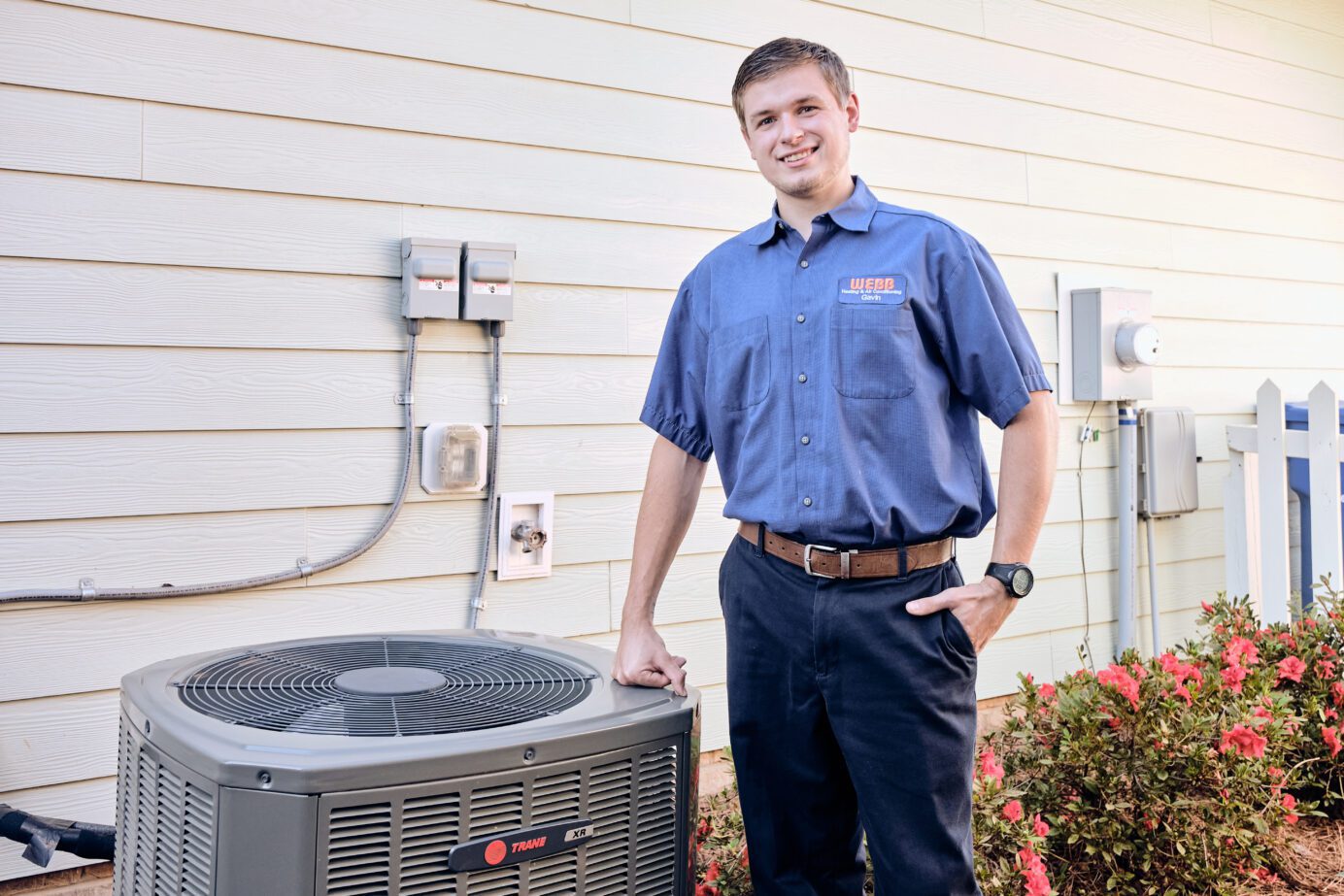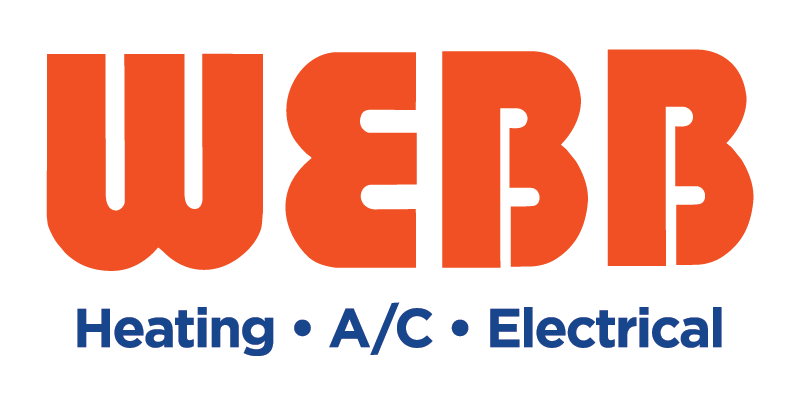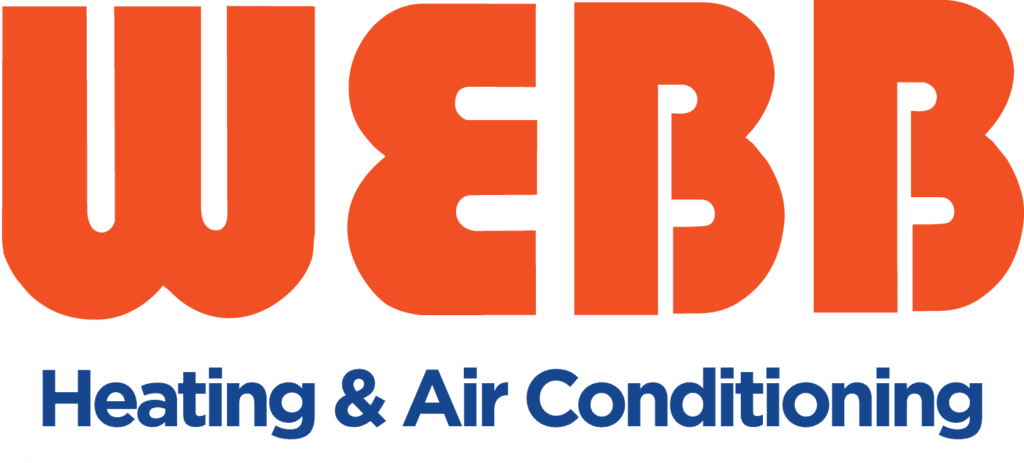How Long HVAC Systems Last in North Carolina

Between humid summers that stretch into October and sudden winter cold snaps, homes in Greensboro, NC, depend on their HVAC systems for year-round comfort. That constant use adds wear faster than most homeowners realize.
Whether you live in Winston-Salem, Advance, or the heart of Greensboro, understanding how long your HVAC system should last, and what it needs to reach that lifespan, can save you money and frustration.
Let’s look at how long key systems last in the Piedmont Triad, what local climate challenges shorten their lifespan, and most importantly, how to protect your investment.
Average Lifespan of HVAC Systems in Greensboro
The lifespan of an HVAC system in Greensboro isn’t just about the brand you install. It’s also about where you live, how often the system runs, and what kind of maintenance it gets.
Here’s how long most homeowners in the Piedmont Triad can expect their systems to last, and what factors may push them closer to early replacement:
Furnaces: 15–20 Years
While Greensboro winters are moderate, temperatures dipping into the 30s still trigger steady furnace use from November through February. Furnaces with annual service sometimes make it to 20 years or more. But this is situational. For example, older homes with crawlspace units or poor electrical protection might not exceed 15 years.
To protect your furnace, annual maintenance should include blower inspections, heat exchanger checks, and flue cleaning.
Air Conditioners: 10–15 Years
AC units here work hard from late spring into early fall, especially in moisture-heavy neighborhoods like Fisher Park. When coils are neglected or outdoor units are surrounded by foliage, efficiency drops and compressors overwork, usually limiting working life to 10–12 years, even on newer systems.
To keep your AC closer to the 15-year mark, routine service should include coils cleaned, refrigerant levels checked, and fan motors inspected each spring.
Heat Pumps: 10–15 Years
In towns like Advance and Winston-Salem, where heat pumps are used for both heating and cooling, year-round run time takes a toll. Components like reversing valves and supplemental heat strips are under consistent demand. Without two seasonal tune-ups per year, many systems fail closer to the 10-year mark.
To extend lifespan, heat pumps should receive biannual inspections focusing on defrost cycle testing, auxiliary heat calibration, and thermostat performance check. This is especially important heading into both summer and winter peaks.
What Cuts My HVAC’s Lifespan Short?
Even high-end systems age quickly without proper upkeep, especially here in the Piedmont Triad.
Some of the most common local lifespan-reducers include:
- Persistent humidity, which slows moisture removal and increases corrosion in coils and air handlers.
- Heavy spring and fall pollen, clogging filters within weeks, forcing the blower to work harder for less effect.
- Storm-related power surges, triggering hard start cycles that shorten the life of capacitors, contactors, and control boards.
- Deferred maintenance, which allows easy-to-fix issues (like refrigerant charge or dirty filters) to snowball into premature equipment failure.
The bottom line? In Greensboro’s active, year-round HVAC climate, skipping even one season of care can set off a domino effect, leading to longer cycles, poorer airflow, and parts wearing out years ahead of schedule.
Greensboro’s Climate and Its Impact on HVAC Systems
While Greensboro’s weather feels mild compared to mountain or coastal extremes, it presents its own kind of HVAC challenge: persistent moisture, high pollen, and sudden temperature swings. These regional factors create 10+ months of system use each year and demand strategic care.
Here’s how specific climate traits affect your system:
- Humid Summers Create Long Run Cycles: With relative humidity regularly in the 70–80% range, AC units don’t just cool; they extract gallons of water from the air daily.
- Ice Storms and Winter Spikes Stress Heating Equipment: Greensboro doesn’t receive frequent snow, but ice accumulation is a known risk. It can block airflow at outdoor units, cause defrost cycles to malfunction in heat pumps or freeze condensate lines.
- Spring Pollen Impacts Filtration & Efficiency: In neighborhoods adjacent to parks or wooded space, residents notice early spring filter clogs. Oak, juniper, grass, and ragweed contribute to thick particulates that reduce airflow and add resistance in blower systems.
These aren’t just momentary annoyances; they exacerbate airflow issues, increase duct static pressure, and can cut a system’s life expectancy by several years if left unmanaged.
Maintenance Tips to Extend HVAC Lifespan in Greensboro
Routine care isn’t just a suggestion in this climate; it’s survival for your HVAC system. Maintenance is where Piedmont Triad homeowners can shift the odds back in their favor.
Here’s how to support long-term health and efficiency in real, practical terms:
- Change HVAC filters every 1–3 months: Homes near parks, schools, or wooded lots should check filters monthly from February through June. Pet owners or allergy sufferers should consider MERV 11+ filters and calendar-based reminders.
- Schedule professional HVAC tune-ups twice a year: Spring service ensures refrigerant charge, coil cleanliness, capacitor health, and fan motor operation. Fall inspections prioritize burner function, flue safety, airflow calibration, and heat strip diagnostics.
- Clean evaporator and condenser coils annually: Coils blocked by biofilm, pollen, or dust lower system efficiency and lead to overheating (in AC units) or freeze-ups (in heat pumps).
- Install or program a smart thermostat: In regions like ours with wide temperature swings, HVAC systems benefit from climate-based scheduling. Smart thermostats reduce runtime on mild days, stabilize indoor temps around controlled set points, and use weather data to eliminate waste.
- Keep outdoor units clear of pine needles, acorns, and mulch buildup: Especially during the fall, condenser bases in Greensboro neighborhoods that back up to wooded property lines frequently become blocked, reducing efficiency and forcing pressure alarms.
Consistent attention to these details doesn’t just improve performance. It can realistically extend HVAC lifespan by three to five years while cutting total ownership costs.
Signs Your HVAC System May Need Replacement
Even well-maintained HVAC systems won’t last forever. Whether due to old age or repeat climate-related wear, many Greensboro homeowners start to notice early signs of decline long before the system fails outright. Catch these issues early, and you can avoid mid-season breakdowns or costly emergency repairs.
Here are some common signs your system may be nearing the end of its usable life:
- More frequent service calls, especially around seasonal transitions
- A noticeable spike in energy bills with no change in usage
- Uneven temperatures between rooms or floors
- Unusual startup noises like grinding, banging, or buzzing
- Visible signs of corrosion, rust, or moisture around air handlers or condensers
- A furnace over 15 years old showing declining performance
- An air conditioner or heat pump that’s older than 10–12 years and struggling to keep up
If any of these red flags sound familiar, a full system assessment is a smart next step.
In some cases, replacing an aging or undersized unit is more cost-effective than funding another round of repairs. If you’re not sure which option is right for you, we can help. Webb’s team not only handles system upgrades and installations, but also provides honest, climate-specific recommendations based on your home, usage patterns, and budget.
Plan Ahead for Long-Term Comfort in Greensboro
HVAC systems in Greensboro typically last 10 to 20 years, but only with diligent seasonal care and quick responses to localized issues like humidity buildup, filter clogs, or freezing conditions.
Don’t wait for a major breakdown to protect your HVAC system. Whether your system is overdue for a tune-up or showing acceleration toward failure, Webb Heating, Air Conditioning & Electrical is here to help.
Keep your system running longer, cleaner, and more efficiently, backed by experts who understand exactly what it’s up against.

